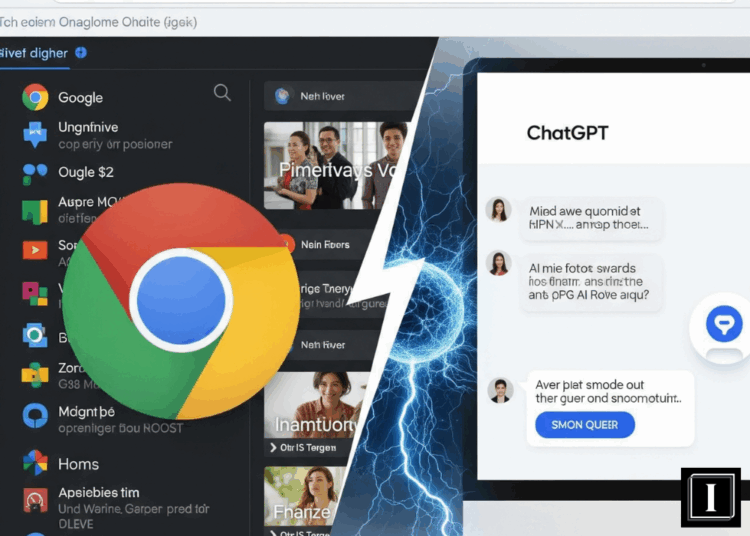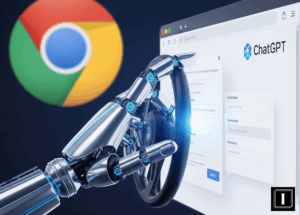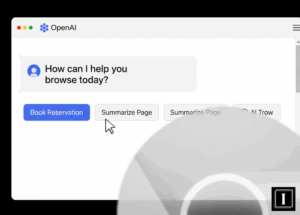OpenAI to Launch AI-Powered Browser to Rival Google Chrome
In a bold move to disrupt the internet browsing space, OpenAI is preparing to release an AI-powered browser that could rival Alphabet’s market-leading Google Chrome. According to sources close to the matter, the browser is expected to debut in the coming weeks and is poised to transform how users interact with the web using artificial intelligence.
OpenAI’s upcoming browser, if adopted by ChatGPT’s vast user base of 400 million weekly active users, could pose a serious threat to Google’s core advertising business. Chrome plays a crucial role in Alphabet’s ad revenue by collecting user data, targeting ads, and directing search traffic to Google’s own search engine. OpenAI’s browser, on the other hand, seeks to reimagine browsing by integrating a conversational AI experience and minimizing the need to click through traditional websites.
A Game-Changing Strategy in the Browser Market
The new AI-powered browser is part of OpenAI’s broader strategy to integrate its services deeply into the daily lives of consumers and professionals. Rather than existing as a mere extension or plugin, this browser is being developed as a standalone product built on Chromium—the same open-source foundation used by Google Chrome and Microsoft Edge.
Unlike traditional browsers, OpenAI’s version will incorporate a ChatGPT-style chat interface. This will allow users to engage with websites, search for information, and complete tasks using natural language rather than navigating through multiple tabs. According to insiders, the browser will also support AI agents, such as OpenAI’s Operator, capable of performing tasks like booking reservations or filling forms automatically.
This seamless blend of AI with everyday browsing could significantly alter how we use the web and offer OpenAI a powerful platform to gain user data—something that currently fuels Google’s advertising engine.
Why OpenAI’s Move Matters
OpenAI’s decision to develop its own AI-powered browser rather than building on another platform highlights its desire for autonomy and direct access to valuable user data. Control over data allows better performance of AI agents, stronger personalization, and potentially greater monetization opportunities.
The move comes at a critical time for Alphabet. In recent years, the U.S. Department of Justice has scrutinized Google’s dominance in online search and advertising. A federal judge even ruled that Alphabet holds an illegal monopoly in the sector. The DOJ has suggested divesting Chrome as a remedy—something OpenAI has reportedly shown interest in. However, Google has rejected such proposals and plans to appeal the ruling.
Still, OpenAI has taken steps to compete head-on. The company recently hired two veteran Google executives who were instrumental in developing Chrome. This decision, paired with OpenAI’s broader investment in AI hardware and products, signals its intent to reshape the digital ecosystem.
Rising Competition in AI Browsing
OpenAI is not alone in this space. Several startups like Brave, The Browser Company, and Perplexity AI have already introduced browsers infused with artificial intelligence. Perplexity, in particular, launched its AI browser Comet, offering users the ability to interact with web content using AI.
However, OpenAI’s massive existing user base and deep integration with ChatGPT give it a potential advantage in scaling adoption faster than competitors. Chrome, with more than 3 billion users worldwide, still dominates the market with a share exceeding two-thirds, according to StatCounter. Apple’s Safari trails far behind with just 16%.
Still, even a modest shift in user behavior could dent Google’s dominance and reshape the browser landscape.
The Future of Browsing with AI
With the potential to redefine the way people interact with information online, OpenAI’s AI-powered browser could emerge as a pivotal product in the evolution of internet use. From enhanced productivity to seamless AI assistance, this browser aims to bring a new level of intelligence to everyday web interactions.
As OpenAI expands its AI footprint—from chatbots to hardware and now browsers—the competition among tech giants for user attention and data is set to intensify.
Stay ahead of AI-powered innovation with IMPAAKT – the top business magazine shaping the future of technology and society.













